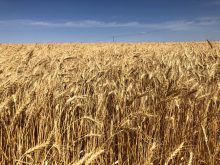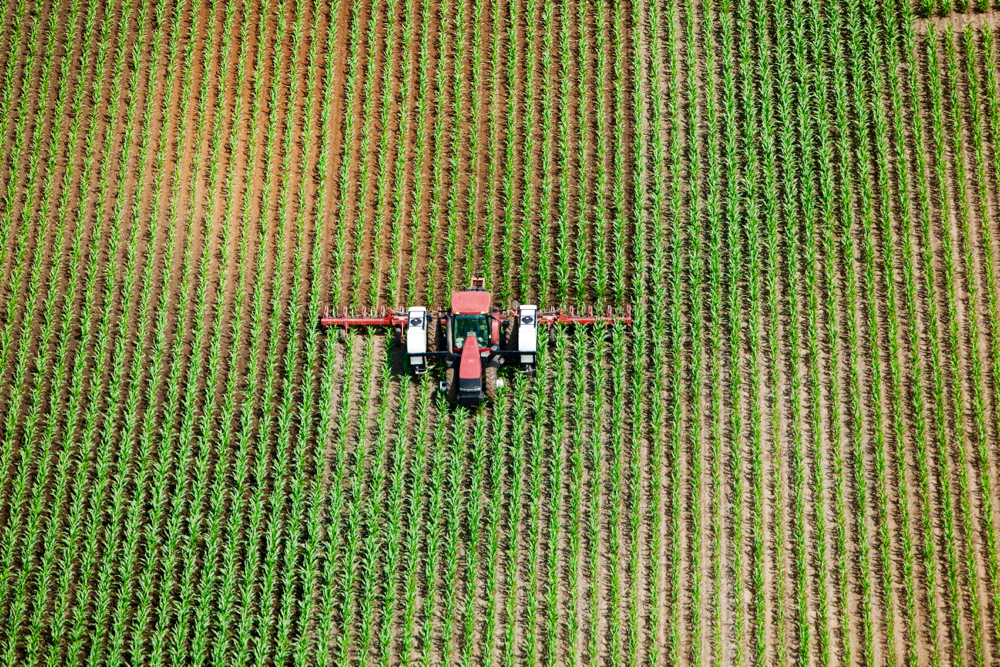Glacier FarmMedia – With supply-chain issues, the war in Ukraine and looming concerns over global food security, Cereals Canada has its work cut out for it.
“Canadian agriculture plays a very important role in providing food security to the world,” said the industry association’s CEO Dean Dias. “We do that by doing scientific work, innovation … technical support, customer service, and we can grow safe, reliable, high-quality food.”
Since its inception in 1972, Cereals Canada (formerly the Canadian International Grains Institute, or CIGI) has positioned itself as the main promoter of Canadian cereals on the international stage. Its vision was to build Canada a stellar reputation as a secure and stable supplier of grains to the world.
Read Also

Innovation takes centre stage at record-breaking Ag Expo
Lethbridge event hits capacity with 326 global exhibitors showcasing the latest ag tech, innovation and the 129th North American Seed Fair.
To do that, it turned its eye to the value chain. The organization developed a mandate to support Canadian grain farmers and their customers through market access, promotion and market development.
Over the last 50 years, Cereals Canada has touted itself as a destination for independent expert technical knowledge throughout the value chain and as an avenue for researching production hurdles, such as issues with milling or product functionality pegged by either industry or consumers. It developed analytic capacity to put data to the qualitative traits of Canadian grains and the products made from them.
Outside the lab, the organization worked on trade advocacy and lobby efforts on regulation. Branches of the organization monitored the winds of trade, looking for niches in international markets where Canadian grains might gain a foothold, or where markets were waiting to be developed.
It joined forces with trading partners and used its pull with both global and domestic customers to smooth trade disruptions and maintain international supplies of wheat, barley and oats.

It’s a group of efforts that Dias linked to the fight against food insecurity, a topic of increasing note under global inflation, a Russian invasion of Ukraine and weather events that have cut yield prospects in various places across the globe.
“Because of the war in Ukraine, people are more and more concerned about food security, not only in developing countries or in crisis-affected countries, but even in Canada,” Agriculture and Agri-Food Minister Marie-Claude Bibeau said during an anniversary event at Cereal’s Canada’s Winnipeg facility July 19.
“It’s a big milestone, and Cereals Canada is a great example of how Canada can contribute to food security around the world.”
According to a July 15 food security update by the World Bank, data taken between February and June of this year showed almost universally high food price inflation in low and middle-income countries, and similar rises in 67.9 per cent of high-income nations. The impact of war in Eastern Europe, COVID-19 fallout and supply chain disruptions was “reversing years of development gains and pushing food prices to all-time highs.”
The United Nations Food and Agriculture Organization has suggested about 2.3 billion people globally were moderately or severely food insecure in 2021, and about 150 million more people faced hunger compared to 2019, before the COVID-19 pandemic.
As for Canada, in March a peer-reviewed article in the HPCDP Journal (Health Promotion and Chronic Disease Prevention in Canada: Research, Policy and Practice), estimated that 14 to 17 per cent of Canadian households saw some kind of food insecurity between March 2020 and May 5, 2021 as the pandemic raged.
Scope
Cereals Canada has hosted training programs, seminars and webinars for more than 51,000 people from more than 55 countries. Frequently, the Winnipeg headquarters has hosted this programming.
“Many people who walk past this building, (they) don’t know that this exists on the 11th floor. It’s something that is unique,” Dias said.
The roughly 35,000-square-foot facility includes a flour mill, a bakery and various analytical laboratories. It’s also home to the Canadian Malt Barley Technical Centre’s (CMBTC) malting facility and a cutting-edge 250-litre pilot brewery.
On-site staff endeavour to find answers when it comes to “supplying countries with the technical support for using Canadian cereals in staple foods like bread, pasta and noodles,” Dias said.
“We work with them hands-on. We build trust. We make sure that if they have a question about quality, we can answer it,” he said. “We believe that we are our customer’s partner.”
It was a sentiment echoed by some of the customers on hand July 19.
Filippo Viesti, purchasing manager for Italian wholesale food distributor Agri Viesti, said Cereals Canada plays a crucial role for his company when it comes to the grade, specifications and various other quality information of the grain they draw from.
“We are focused on durum wheat and, in our company, in our value chain, quality is very important,” he said. “We can’t produce pasta without it. They are important because of this facility, because of the information they provide and because of the job they do for importers like us.”
“We are proud to have completed 50 different harvests,” Dias added. “We’ve analyzed it here and we’ve provided that type of technical support to customers around the world.”
There will be new challenges as the organization breaks into its second half-century, Dias also noted.
“We want to be at the forefront. We are creating a marketplace that is competitive for our farmers, our exporters and our industry.”
– This article was originally published at the Manitoba Co-operator.















